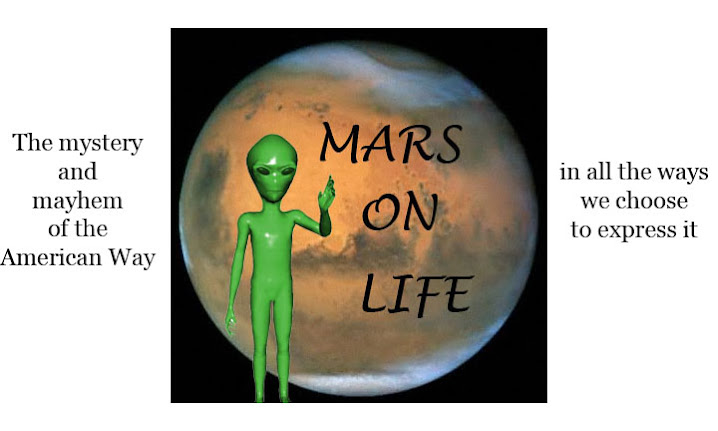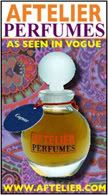
The latest Axe commercial features a young man who turns into milk chocolate after spritzing himself with Dark Temptation, Axe's newest scent. Dark Temptation is number eighteen in a line of deodorant products whose target consumer is the teenage male or middle-aged Englishmen who live in Rutland and append a "007" to their e-mail addresses.
Just why Axe's newest scent might appeal to these consumers can be intuited from watching the Dark Temptation commercial. After a liberal dousing with the product, the protagonist turns into milk chocolate and takes to the streets, where he is licked, bitten, and otherwise caused bodily harm by a plethora of exciting young women, none of whom is diabetic.
Terrible acting aside, what happens to the man--who loses a hand, an arm, and his nose--is called "The Axe Effect." The message is simple: Spray yourself with Axe and watch shameless women become even more shameless, especially in public places where one might otherwise pass unnoticed. When was the last time someone ground a giant strawberry into your navel in the middle of a city park and then devoured the fruit?
Women, it appears, are extremely oral creatures.
Although the man resembles Ex-Lax more than he does an Easter rabbit, the commercial works on a simple, gut level. The continuity is so appalling it can't help but be deliberate; the man tears off off his nose in an early shot, only to have it reappear in the next; he gives away his right hand only to be missing his left; his ears are licked away and regenerate in time to hear the beat of disco music.
While the premise of female sexual mania is formidably exciting to advertisers, it is only a forty-year-old phenomenon. Sex in advertising dates back to the Stone Age, when Neanderthal man first exfoliated himself with lava rock, did the prehistoric boom-boom, and spread the good news to his fellow Paleolithic humans.
The lusty female took over where the romantic female left off, roughly around the time Hugh Hefner published his first copy of Playboy. Devoid of intelligent conversation (or outright mute), the lusty female first attacked a man in a commercial for Hai Karate aftershave. Since this is not Chekhov, actions speak louder than words: Wow! What's that aftershave you're wearing? a woman exclaims, and without waiting for reply attacks a man so ardently that he must use karate to fend her off. There will be no movie date tonight, Ernie. "...drives women right out of their minds," the narrator says, "that's why we have to put instructions on self-defense in every package."
While that is certainly agreeable news to any defenseless male, what is even more agreeable is the sheer number of products claimed to provoke a sexual response. In the 1960s, that primarily meant the very allusive cigar and shaving cream. Both Tiparillo and Noxzema wasted no time in casting their products in formulaic starring roles.
The similarity between these ads and the Axe commercial isn't just the sexual premise. At their core they describe that sex was never meant to stay strictly in the bedroom and that the reason we are so fascinated by sex is that the possibilities are endless. So are the combinations. An anonymous yet well-manicured hand offers a topless brunette librarian her choice of a regular or menthol Tiparillo; a topless blonde violinist gets only the menthol option. In neither case does the model appear remotely interested in the product or the hand; her gaze is aimed directly at the camera and not at "the slim cigar with the white tip." One presumes that the models will choose the cigar over the violin or the literary tome, although why the models would pick up these items in the middle of foreplay isn't made clear. The mystery Lothario gives these ads a Bond-like appeal; the women could be Honey Rider or Pussy Galore and except for hair color and career are interchangeable.
Less Bond-ish are the ads Joe Namath did for Noxzema shaving cream. Following his win in the 1969 Super Bowl, "Broadway Joe" romped home with lucrative commercial endorsements. Although his pantyhose ad was more notorious, it's the Noxzema ad with Farrah Fawcett that had men lining up to "get creamed." You see right through Namath in this one; there was no point in playing up an intellectual angle that simply didn't exist. Namath looked and sounded stoned, as if he'd taken a quick toke to calm his nerves before filming.
This commercial was a follow-up to an earlier shaving series featuring Gunilla Knutson, a Swedish model who implored men to "Take it off, take it all off." Never mind that the smell of Noxzema could never be mistaken for sexy, it only counted that the girl was and that she was talking to you.
It has to be said that most of these commercials--Tiparillo excepted--did not gravitate towards sophistication, as if some quasi-continental quality might make the product seem suspiciously un-American and therefore less than macho. Plus, didn't most men spend their days sitting in commuter traffic and raking leaves? Or making lopsided bookshelves and watching football? These backyard heroes could be efficiently attracted by appealing to both the need to reproduce and and the need to escape domestic banality. There was no need to cast them in the role of their European counterparts, since European savoir faire might be mistaken as fussy or perverted.
In all events, the target consumer was a full-grown adult who sowed his oats singly.
This is why the Axe ads are such an exciting feature on the advertising landscape. Their scenarios reflect true biology far more cannily than those of their predecessors; who in 1968 would admit that group sex is the desirable outcome of the male urge and not merely the practice of swingers? They display a complete lack of intimacy and bonding, two emotional climates that in retrospect seem hopelessly out of step and almost naive. What Axe does may seem crude and even a bit sloppy, but that is a large part of the ads' allure. Teenage boys are crude and sloppy, so? They grow up to become men who will presumably acquire some ability to discern, but there's no guarantee of any specific outcome. Nor will they be held back by body odor. Pimples and onion breath maybe, but never funk.
Saturday, March 22, 2008
Take It Off, Take It All Off
Labels:
Hai Karate,
Joe Namath Noxzema Commercial,
Tiparillo
Subscribe to:
Post Comments (Atom)









4 comments:
Thank god you don't have to see the Lynx ads here....precisely because there has been this 'tradition' of using sex as a product weaponry in ads, they have played on the kitsch factor that goes with that and really hammed it up so in the end you don't take it seriously but end up laughing at Lynx...
Is it true that the people that are backing Axe campaigns and Dove beauty campaigns are the same people!!??
Sorry I have like a year's worth of your posts to catch up on! I haven't been posting much as of late. I still have fantasies about a print collaboration though...
I can only say that has ridiculous as these ads are, they work. When I was teaching the number of times I walked down the halls to boys liberally applying Axe (or Lynx in Britain) was astounding. Desperation works in weird ways.
Oh. Dear. I know too well those guys that tack on a "007" to the end of their email addresses. They almost always sport some combination of Axe and Aqua di Gio, and fancy themselves a bit Euro-sportif by wearing oddly-treated denim and shoes from Aldo. Strange creatures, they are.
Post a Comment